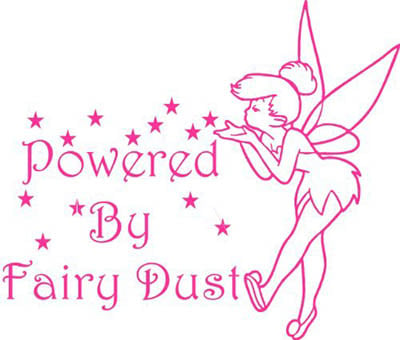
What's your parenting style? Do you hover, push, coerce, outsource, micro-manage, motivate, let go or just hope for the best?
* * * * * *
We’re the first to admit that parenting is an exhausting, largely thankless task. We know. We know the 'Net is full of contrary advice, and kiddie pick-up points are full of other parents doing it way better than you. We know. Been there, got the T-shirt.
But there are obvious pitfalls to avoid. Are you lurking near one? Read our parenting profiles below to find out. (Obviously, if you have a serious concern about any parenting issue, please seek professional advice - we at King’s can help.)
The Helicopter
This is the parent who hovers nearby to protect her darling from harm and disappointment.

This might be you, if:
- absolutely everything in your house is child-proof
- you write a lot of notes to the teacher, explaining the “specialness” of your child
- you do their homework/assignments
- you are a maid in your own house, picking up, cleaning, etc, without your child performing age-appropriate chores
- you fight their battles
- you need to be in constant contact with your child, including ringing and/or texting them at school
Catchphrase:
“I wonder if twice the medication is twice as good?”
Why this is unhelpful
Children need to learn to cope in the big world, as appropriate to their age. Hovering nearby robs them of opportunities to grow in confidence and competence.
The Lawn-Mower (or Snowplough, in colder climes)
This is the mum or dad who pushes all obstacles from their child’s path, believing it’s only the world slowing down their brilliant child.
This might be you, if:
- you bring non-essential forgotten items to school for them (we don’t mean their Epipen!)
- you blame their teacher for poor grades
- you push to have them included in activities beyond their level
- you speak for them, even in their presence
- you charge up to the school at any hint of a social problem (all problems are “bullying” and your child is always in the right)
- you lobby the school for your child to receive a prize at Awards Night
Catchphrase:
“I’ve finished that draft research for our essay.”
Why this is unhelpful
A person who does not experience failure cannot cope with its inevitability. Lawn-mowered kids run the risk of becoming over-dependent and not understanding that actions have consequences. This is because they lack agency in their own lives.
The Contractor
Becoming more popular as exhausted and over-committed parents use screens as nannies, this is the parent who’s in it for the fun parts only and is happy to offload the tiresome and tedious to paid professionals.

This might be you, if:
- your child’s life is a series of ‘appointments’; they have no “free time”
- you are proud of your toddler’s competence on your SmartPhone
- cash is king: paying private school fees equals a decent grade for your child
- you require the school to discipline/advise your child on non-school matters
- “growing up with your kids” is your parenting motto
- your kid has the latest and greatest stuff but no time with you
Catchphrase:
“I must schedule some time with Junior, this week.”
Why this is unhelpful
Going through the ups and downs of growing up is a bonding experience. Employing necessary help is fine; just make sure your kids have secure boundaries and your emotional presence.
The ‘Cool’ Parent
Of all of the parents described here, the ‘cool’ parent is the bane of other parents. He is the low-bar dad who allows his son to consistently skip his homework; she is the mum who buys make-up for her 12 year old. They are constantly cited by other kids as the gold-standard.
This might be you, if:
- you denigrate the importance of education, the church, family values, etc, in front of your child
- you’d be happy enough to provide alcohol (or worse) for your older teen’s party
- you laugh off discipline breaches; after all, “boys will be boys”
- you don’t follow through with consequences
- you take more than a passing interest in teen trends (you’re 'Friends' with your kid’s friends on social media)
- you’re planning matching tattoos for your child’s 16th birthday
Catchphrase:
“Can’t wait to get wasted with you at Schoolies, Dude.”
Why this is unhelpful
As the experienced adult, you are responsible for setting boundaries for your child. While being ‘cool’ might make you feel good in the moment, it’s unhelpful for your child, who needs the surety of reasonable limits and consequences.
The Free-Range Parent
This is the parent too lazy/busy/slack to be “hands-on” with their children’s lives, citing that kids need freedom. While there is a deal of truth that kids need to test their own limits, it is the parent's job to help them manage the risks.
This might be you, if:
- you make no enquiries about your child’s whereabouts or companions
- you allow your child unfettered access to the Internet
- you want to head-butt the parents who talk about how anti-contact sports they are
- you’re frequently very late to fetch your kids from events and excursions
- friends have stopped inviting you to their house because your unrestrained toddler terrifies their dog and breaks their stuff
Catchphrase:
“You can only get up if you’ve fallen.”
Why this is unhelpful
We know that parenting is this tricky balance between your child’s independence and common-sense safety. Your child must know that your judgement is sound and he is secure following your advice. You are your child’s safe place.
The Tiger Parent
Here’s the dad who values academic achievement above all else, the mum who micro-manages her daughter’s ballet ‘career’. Emphasising that almost anything is possible with hard work is a good lesson for all parents and their children to absorb but these drill-sergeants are prepared to sacrifice almost anything for their kid’s public glory.

This might be you, if:
- an A grade is barely acceptable
- you set your child’s goals
- you have eliminated any distractions from your child’s life (ie anything outside of what goals you have set)
- anything that can’t be ‘graded’ is a waste of time
- your family's life is minutely scheduled
- any ‘failure’ on your child’s part is a result of not enough effort, spirit, work; lack of talent, ability, or interest is not a consideration
Catchphrase:
“I will cancel Christmas if you don’t ace the Physics test."
Why this is unhelpful
Tiger-parenting is conditional love, or it seems that way. In the end, your child’s success should be a product of them exercising their natural talents and interests. While external motivation is encouraging, intrinsic motivation is what keeps us going through the difficult times.
The Emotional Leech
While our babies need constant physical and emotional love and tending, this naturally changes as baby grows more independent. Some parents are so clinging to their child that the child is suffocated by the emotional needs of the parent. Of course, there are cases of illness and/or disability, but the parent is the nurturer of the child, not the reverse. It may well be a form of emotional blackmail.
This might be you, if:
- you frequently allow/require your child to miss school because you’re having a bad day or you just want company
- you cite their need to tend you as an excuse for missed deadlines
- you “overshare” age-inappropriate personal information with your child
- you have faked or exaggerated an illness to alter someone’s behaviour toward you (emotional blackmail)
- you have used money or similar to alter someone’s behaviour toward you (bribery)
- you feel lost and anxious without constant contact with your child
Catchphrase:
“You complete me.”
Why this is unhelpful
Our children should not ever doubt our ability to provide for their needs. Any needs of adults should be, for the most part, met by other adults. Please reach out before you’re struggling.
The Tinkerbell
Teachers and coaches all over the country know this parent. These are the ones who insist their sweetie can do anything they put their mind to, even if it flies in the face of repeated contrary evidence. These parents are supported by the mistaken mantra recited in the media that so-and-so was successful because she believed in herself. While it’s essential to be optimistic and positive, sometimes, we just have to go with the data.

This might be you, if:
- you make wild predictions of success based on no evidence: “I believe Johnny will come first in this test!” after no additional study and a record of very average grades in this subject
- you secretly (or not secretly) believe your child is better than the other kids
- you often think the teacher/coach is not giving your child enough individual attention
- you’re dictating the destination without the map: you’re a cheer-leader with no game-plan
- it’s really all about you, about fulfilling something about yourself
Catchphrase:
“I believe you can fly, Icarus!”
Why this is unhelpful
It’s unhelpful because it’s not true. We all have limits to our potential, mostly out of our control. Children who’ve been raised on this mantra may turn any failure inward, blaming themselves. It may also encourage unethical conduct. Encourage your child in a number of areas, always emphasising effort over talent or results.
The Dolphin
This parenting style is the happy medium between extremes. According to Dr Shimi Kang, the dolphin parent remembers the POD acronym: P(play), O(others), D(downtime). Dolphin parents rely on their intuition and seek help when it’s needed.

This might be you, if:
- you allow your child increased autonomy as she grows
- your discipline is a reasonable consequence of action
- you don’t do for your child (most) anything he can do for himself
- within your child you cultivate intrinsic motivation and discipline
- you are a good (not perfect) role-model for your kids, aiming for balance and purpose
- when your child fails, you use the experience as a gentle guide
Catchphrase:
“I trust my own judgement, and I trust my child.”
Why this is helpful
This approach aims for age-appropriate balance: authoritative and firm but flexible and encouraging. Teaching kids the value of independence (with you as a shrinking safety-net) develops self-confidence, creativity, and the ability to adapt. This is also the most difficult of all the parenting styles because it is relational - it relies on collaboration between the parent and child.
Ultimately, if your parenting is about you, your ego, your needs, then maybe you could do with a reset. All of us veer off-track. Cut yourself some slack. Parenting is an ebb and flow of closeness and growing with your child. It’s the relationship that counts.
"Start children off on the way they should go, and even when they are old they will not turn from it."
- Proverbs 22: 6










